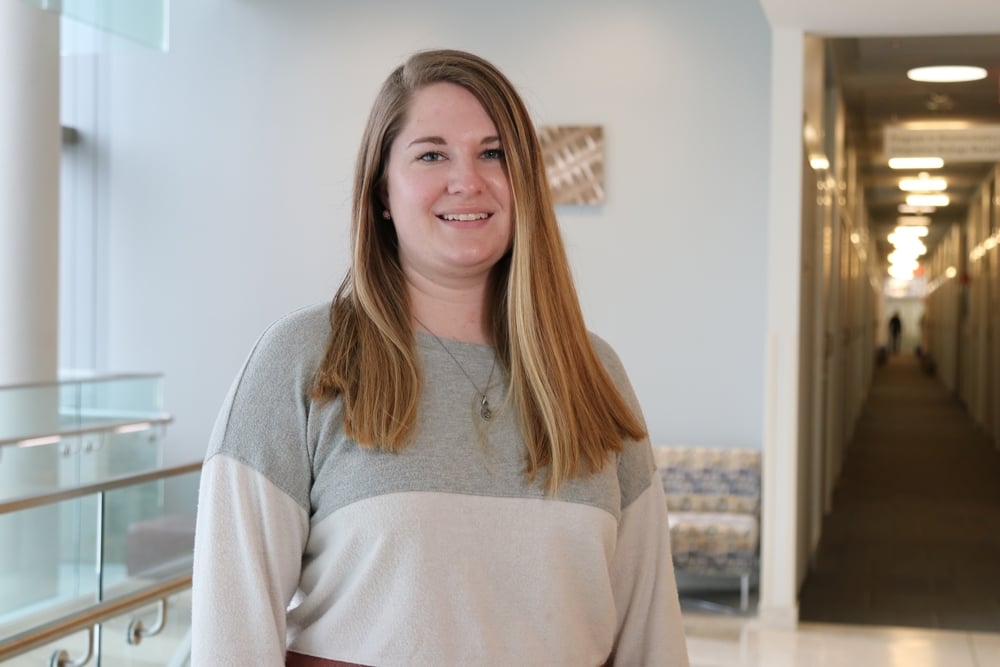Megan Fowler-Magaw, PhD candidate, Neuroscience Program
“ALS all starts in the brain and research is where it starts to hopefully get better.”

Amyotrophic lateral sclerosis, more commonly known as ALS or Lou Gehrig’s disease, is a progressive, neurodegenerative disorder that involves the loss of motor neurons in the brain and spinal cord that control voluntary muscles.
Megan Fowler-Magaw, a PhD candidate in the Morningside Graduate School of Biomedical Sciences at UMass Chan Medical School, studies a specific gene that is found in 97 percent of ALS cases. The name of the gene is TDP-43. It is a transactive response DNA-binding protein.
“Within three to five years of diagnosis, people are unfortunately dying from ALS. I think that’s something that really deserves attention,” Fowler-Magaw said. “It all starts in the brain and research is where it starts to hopefully get better.”
ALS has many mutations. More than 90 percent of cases are classified as sporadic. That means there isn’t one gene mutation that causes the disease, making it important to find a common denominator between them.
Fowler-Magaw studies how chronic or aberrant cellular stress in ALS—or other similar diseases—could be related to TDP-43.
“It’s really interesting to think of what starts this pathology,” Fowler-Magaw said. “What happens that makes the wild-type version of this gene become pathogenic and contribute to motor neuron degeneration in ALS?”
Fowler-Magaw has a bachelor’s degree in behavioral neuroscience from Northeastern University. The Westford native enjoyed studying areas of human behavior, which led her to study neuroscience at UMass Chan. She works in the lab led by Daryl A. Bosco, PhD, professor of neurology.
